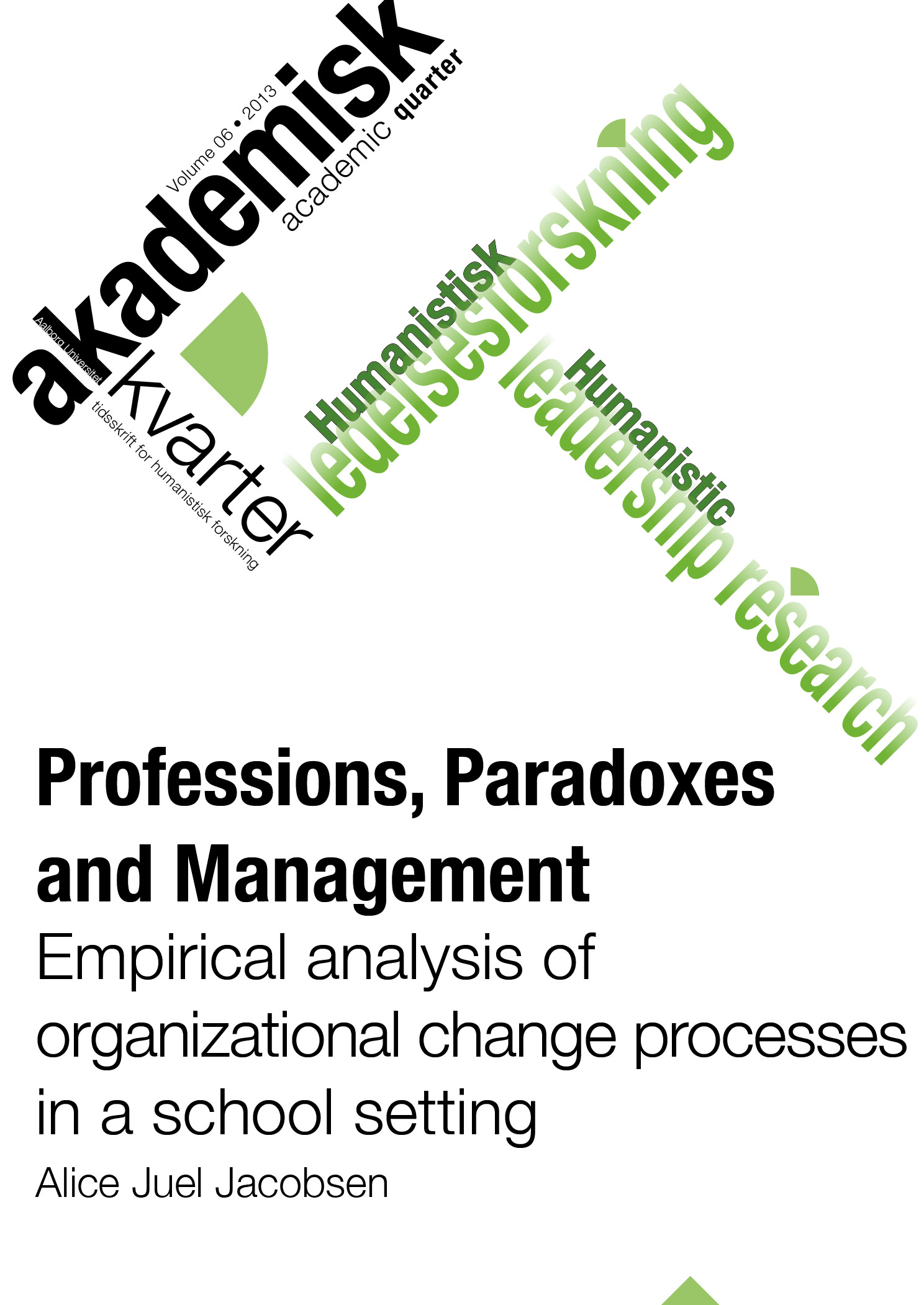Abstract | Abstract
Reform of the public sector has been on the agenda in Denmark, as in many other western countries, during the last two or three decades. New Public Management (NPM) has had major implications for professions and the managers who are handling the changes and creating new organizations - “the front line providers and supporters of public services”, as they are described by Farrel and Morris (2003: 136). An overlooked aspect in the literature on professions is a focus on their processes in managing and impacting the changes when they are translated into practice (Sehested 1996; 2002, Ferlie et al. 2000, Farrel and Morris, 2003, Juel Jacobsen 2009). With an ethnographic approach and a concept of paradox as a lens to explore on-going processes, this paper investigates the interaction between management of professions in a Danish upper secondary high school. The purpose of the paper is to add to our understanding of management of professions. The following research questions frame the investigation: How do the professions manage their project when they are to create organizational processes of change that involve new understandings of their work, and what are the organizational implications? How do managers and professions respond to competing tensions? And what management characteristics are effective in attending to contradictory demands? The results of the empirical research seem to challenge basic assumptions generated by the classical professions` theory of autonomous and self-reliant professions (Larson 1977, Abbott 1988, Freidson 1986). These assumptions are repeated in newer organizational theory concerning professions (Ferlie et al 1996, Sehested 2002, Sognstrup 2003, Kragh Jespersen 2005) The empirical research of this paper, however, illustrates that the professions.
